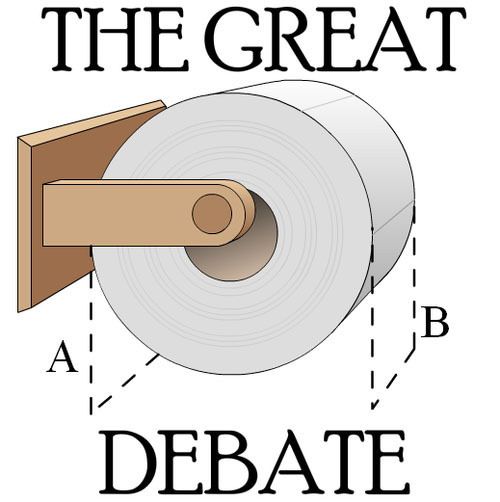DeletedUser
Argumentum ad Verecundiam
A debate, a tangent to discussions, keeps on popping up in our various debates here in these forums, and that's sources.
It is quite common for people to not provide attribution for their statements, or to claim authority in statements with only an inference of legitimacy. This, unfortunately, muddies up debates and is often used precisely for that purpose, rather than as a utility for cogent and informed discussions. What truly messes things up is when people use pseudo-sources or wikis to argue credibility.
Examples of pseudo-sources are blogs and op-eds (opinion articles / editorials), neither of which are actual "information" sources. Instead, such attributions are argumentative fodder, posturings and often biased or simply ignorant rants. Wikis are a little less obvious, in that they often include information but, because they are community-collected data, they are not actually sources. Instead, they should be used as utilities to find sources.
Wikipedia, a specific example, is written by community members and oftentimes the data presented on Wikipedia is biased or quotes and statements taken out of context. What matters is not what is written in Wikipedia, it's the references and links provided. That's the real meat, that's what should be reviewed, not the questionable summation posed on a Wikipedia page. Wikis are not accepted as references or sources, by colleges, universities, high schools and even elementary schools because wikis are simply not sources, they're warehouses and the information they may provide is transitory --- it changes because too many fingers are in the pie and nobody claims ownership. They're a great place to start your research, but a "source" comes from the "source" not from a secondary or tertiary locale.
Journalists are tasked to quote only sources, not here-say (a stark contrast to tabloid writers). As it is, Wikipedia is a huge here-say. It is the references that may very well be the sources, and that's what you need to be reading. You review Wikipedia, catch a comment that intrigues you, then immediately look for the citation number and chase the "source." That's how you do it. If you're doing it any other way, if you're quoting Wikipedia as your argument, rather than as a warehouse of information, then you're simply doing it wrong.
Whether it's Wikipedia, a blog, or an op-ed, attempting to utilize any of these as credible sources is a logical fallacy (Argumentum ad Verecundiam). If you know better, then you're doing it on purpose to throw off your fellow debaters.
A debate, a tangent to discussions, keeps on popping up in our various debates here in these forums, and that's sources.
It is quite common for people to not provide attribution for their statements, or to claim authority in statements with only an inference of legitimacy. This, unfortunately, muddies up debates and is often used precisely for that purpose, rather than as a utility for cogent and informed discussions. What truly messes things up is when people use pseudo-sources or wikis to argue credibility.
Examples of pseudo-sources are blogs and op-eds (opinion articles / editorials), neither of which are actual "information" sources. Instead, such attributions are argumentative fodder, posturings and often biased or simply ignorant rants. Wikis are a little less obvious, in that they often include information but, because they are community-collected data, they are not actually sources. Instead, they should be used as utilities to find sources.
Wikipedia, a specific example, is written by community members and oftentimes the data presented on Wikipedia is biased or quotes and statements taken out of context. What matters is not what is written in Wikipedia, it's the references and links provided. That's the real meat, that's what should be reviewed, not the questionable summation posed on a Wikipedia page. Wikis are not accepted as references or sources, by colleges, universities, high schools and even elementary schools because wikis are simply not sources, they're warehouses and the information they may provide is transitory --- it changes because too many fingers are in the pie and nobody claims ownership. They're a great place to start your research, but a "source" comes from the "source" not from a secondary or tertiary locale.
Journalists are tasked to quote only sources, not here-say (a stark contrast to tabloid writers). As it is, Wikipedia is a huge here-say. It is the references that may very well be the sources, and that's what you need to be reading. You review Wikipedia, catch a comment that intrigues you, then immediately look for the citation number and chase the "source." That's how you do it. If you're doing it any other way, if you're quoting Wikipedia as your argument, rather than as a warehouse of information, then you're simply doing it wrong.
Whether it's Wikipedia, a blog, or an op-ed, attempting to utilize any of these as credible sources is a logical fallacy (Argumentum ad Verecundiam). If you know better, then you're doing it on purpose to throw off your fellow debaters.
Last edited by a moderator:


